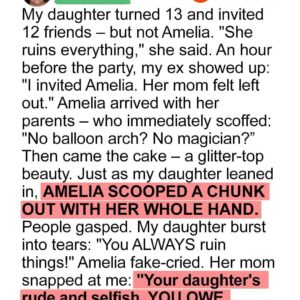We’ve all been there – you crack an egg, and before you even see it, the horrible smell punches you in the nose. Instead of playing a risky game of “Is this egg still good?” you can save yourself the trouble by cracking the mysterious code printed on the shell and carton.
Eggs are a kitchen essential, a breakfast staple, and an all-day protein powerhouse. Whether you love them scrambled, fried, poached, or baked into a delicious cake, eggs find their way into countless recipes.
But when it comes to buying eggs, have you ever noticed those extra numbers printed on the carton? Beyond the expiration date, there’s a secret code known as the Julian date – a key to understanding the true freshness of your eggs. Let’s crack the code and make sure you’re getting the best eggs possible!
Julian date
If you take a close look at your egg carton, you’ll find a three-digit number printed near the sell-by date. This isn’t a random serial number – it’s the Julian date, which tells you the exact day the eggs were packaged, USDA explains.
The Julian date follows a simple numbering system:
001 represents January 1st
365 represents December 31st
For example, if the Julian date reads 045, that means the eggs were packaged on February 14th. This system allows you to quickly gauge how fresh your eggs are before you buy them.
The plant code
Next to the Julian date, you’ll often see a code that starts with “P” followed by four digits.
This is the plant code, which identifies the facility where the eggs were processed and packaged.
Note: This code is especially useful if there’s a recall on eggs – you can check if yours are affected by looking up the plant code on the FDA’s Egg Safety website.
Why the codes matter
Understanding the carton codes helps you make informed choices.
Eggs stay freshest for about four to five weeks after packaging. However, the USDA allows eggs to be sold for up to 30 days after packaging, which means that even if a carton is well within its sell-by date, it could already be several weeks old.
When you’re buying eggs, look for the highest Julian number on the cartons at the store. Higher numbers mean fresher eggs.
Compare the Julian date with the sell-by date. The closer they are, the fresher the eggs.
Buy eggs within a few days of packaging to enjoy the best taste and texture.
Downsides of older eggs
Eggs don’t suddenly go bad after their expiration date, but they do change in quality over time.
Here’s what happens as eggs age:
They lose moisture and carbon dioxide, making yolks more fragile and whites runnier.
The risk of foodborne illnesses increases, especially if eggs are stored improperly.
Fresh eggs taste better and hold their shape better in cooking and baking.
While older eggs might still be safe to eat, fresh is always best – especially if you’re making dishes where texture and consistency matter, like omelets, poached eggs, or meringues.
Proper storage
Once you’ve chosen the freshest eggs possible, storing them correctly is key to maintaining their quality.
Keep eggs in their original carton. The carton protects them from absorbing strong odors from other foods.
Store eggs in the coldest part of your fridge (not on the door, where temperatures fluctuate).
Use eggs within three to five weeks of purchase for the best taste and texture.
How to identify rotten eggs
If you’re unsure whether your eggs are still fresh, try these simple tests.
Float test: Fill a bowl with water and gently place an egg inside.
Fresh eggs sink and lay flat.
Slightly older eggs stand upright but don’t float.
Bad eggs float to the surface due to increased air inside the shell.
Crack test: If you’re still unsure, crack the egg into a separate bowl.
Fresh eggs have firm, round yolks and thick whites.
Older eggs have flatter yolks and runnier whites.
If an egg smells bad or looks off – toss it out!
Tips to buy the freshest eggs
According to the Egg Safety Center, here’s what to look for when buying eggs:
Choose eggs from a refrigerated section.
Inspect the carton for cracks or dirt. Clean, intact eggs are best.
Look for the USDA Grade shield. This ensures the eggs meet strict quality standards.
Buy only what you need. Instead of stocking up, purchase eggs as you need them.





